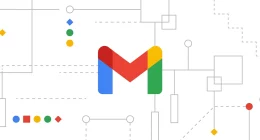If you’ve been keeping up with tech news in the last couple of years, chances are you’ve been inundated with reports on the impressive new capabilities of generative AI. Creative systems like ChatGPT and Midjourney have received the bulk of the attention here, but they’re far from the only names in the game. Just as promising are AI developments made to automate routine tasks, like Microsoft’s Copilot. Though most of these systems are so far targeting business uses, they also hold immense potential in casual use for casual users.
Assistants in Action
For an illustration of what an assistant could be trained to do, consider a common use of the internet today like browsing and playing online casino titles like the Sugar Rush slot. This 7×7 layout 20 payline slot follows common slot rules and is designed to work and play just as well on mobile and desktop platforms. Like all slots, the fun here doesn’t come from overly complicated systems, but rather the exhilaration of the game of chance. As luck would have it, the streamlined design of both this game and its website could perfectly integrate with the coming potential of AI assistant programs.
With AI, players could first log into their accounts through the use of biometric security measures. As reported by CNBC, passkeys are helping to streamline these approaches, reducing requirements to remember a huge number of different passwords. Instead of having to remember a casino login directly, AI could hand off a passkey request to a paired mobile. Here, a simple face or fingerprint scan would keep a user’s account safe.
At this point, the user could ask for a top list of online casino websites, which could be narrowed down by entered criteria. Some users might prefer an Irish theme, for example, while others could favour a service which offered games from specific developers like Microgaming or NetEnt. AI could then enter the website, locate the signup portion of the website, and then enter a user’s data according to audio prompts.
Finally, new generations of AI could also be used to play the games one spin at a time, again with verbal commands. While assistant AI likely won’t be powerful enough to play complicated titles like with video games, online casino games are streamlined enough that pattern and text recognition could be all that’s needed to start. The user could be prompted for bet amount and bonus settings, and then each spin could be started with callouts.
The potential for systems like Microsoft’s Copilot and this theoretical home assistant software could be immense for convenience, but it’s just as great as a serious tool. Users with visual impairment could lean on AI to read out text, those with dexterity difficulties could easily interact without the use of their hands, and every part of the process would be much easier than it is now. Assistant AI could serve as the most profound advancement in digital accessibility seen in years, which could affect everything from entertainment like casino games to the professional work environment. It’s no longer science fiction, and as we rely on digital technology more each year, AI could bridge a gap many of us might otherwise never cross.





